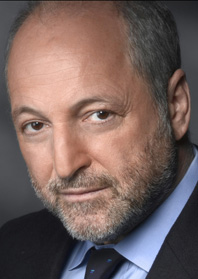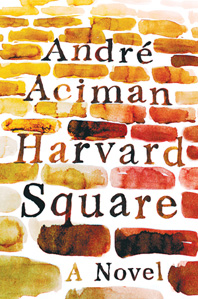(A version of this interview was published in the April 2013 issue of The Practicing Writer.)
As I’ve written, one of the most rewarding benefits of my “day job” is the opportunity that it has afforded me to meet some amazing writers-who-teach within The City University of New York (CUNY). Their work has enriched me, and, gratifyingly, many of them have been interested in my writing as well. From feedback on drafts to editorial referrals to a simple kind word or two, I’ve benefited from their generosity right from the start of my arrival at CUNY.
Among the most generous of these individuals is André Aciman.

Aciman was born in Alexandria, Egypt, and is an American memoirist, essayist, novelist, and scholar of seventeenth-century literature. He has also written many essays and reviews on Marcel Proust. His work has appeared in THE NEW YORKER, THE NEW YORK REVIEW OF BOOKS, THE NEW YORK TIMES, THE NEW REPUBLIC, and CONDE NAST TRAVELER as well as in many volumes of THE BEST AMERICAN ESSAYS. Aciman grew up in a multilingual and multinational family and attended English-language schools, first in Alexandria and later, after his family moved to Italy in 1965, in Rome. In 1968, Aciman’s family moved again, this time to New York City, where he graduated in 1973 from Lehman College of The City University of New York. Aciman received his PhD in Comparative Literature from Harvard University and, after teaching at Princeton University and Bard College, is Distinguished Professor of Comparative Literature at The Graduate Center of The City University of New York. He is currently chair of the PhD Program in Comparative Literature and founder and director of The Writers’ Institute at the Graduate Center. He has also taught creative writing at New York University, Cooper Union, and Yeshiva University. In 2009, Aciman was also Visiting Distinguished Writer at Wesleyan University.
Aciman is the author of the Whiting Award-winning memoir OUT OF EGYPT, an account of his childhood as a Jew growing up in post-colonial Egypt. His books and essays have been translated in many languages. He has also published FALSE PAPERS: ESSAYS ON EXILE AND MEMORY and ALIBIS: ESSAYS ON ELSEWHERE as well as two novels, EIGHT WHITE NIGHTS and CALL ME BY YOUR NAME, for which he won the Lambda Literary Award for Men’s Fiction. His forthcoming novel HARVARD SQUARE will be published in April 2013.
Please welcome André Aciman.
ERIKA DREIFUS (ED): The Summer 2007 issue of THE PARIS REVIEW included your piece, “Monsieur Kalashnikov.” The text of this piece resembles – but is not identical to – portions of Harvard Square. Had you written the full novel by then? Did you initially write “Monsieur Kalashnikov” as a stand-alone story? Please tell us a bit about the connection(s) between “Monsieur Kalashnikov” and HARVARD SQUARE.
ANDRÉ ACIMAN (AA): The novel had a very strange beginning. It started in winter of 2006 when the producers of The Moth [http://themoth.org] invited me to tell a story in public about a memorable character. Before officially drawing up an agreement, they wanted me to give them a sense of the story I was planning to tell. So we made a telephone date during which I managed to tell the story of Kalaj during the space of an hour or so. This is when I realized something about myself that I’d always known: I am not a born raconteur. At dinner parties I’ll remain mostly quiet, occasionally dropping a few words here and there, maybe a sentence or two – never more. I also realized something very important: that my medium was not the voice from my mouth, but my voice on paper.
The producers liked the story; I liked it too. But I didn’t like the fact that the suspense governing every sentence was totally lacking. So I said I would think about the engagement. I hung up the phone and began to jot notes about the story I would tell the public. These notes burgeoned into paragraphs – until it hit me that what I wanted to do instead was to write the story and forget all about the public engagement.
Which is what I did. It took about three to four months to write the story. I was totally inspired. I worked very fast. This made me feel very good because exactly a year earlier, in the spring of 2005, I had written CALL ME BY YOUR NAME at that same pace….When the story was finished I sent it to my agent who liked it but was, needless to say, a bit dismayed since once again, I had failed to submit the manuscript I was contracted to have finished by then. (I finished that manuscript in 2008: EIGHT WHITE NIGHTS.)
Meanwhile, I knew I had a novella on my hands and had no idea what to do with it. So I sent it to THE NEW YORKER. The fiction editor said she liked it a great deal but passed on it. I then called Philip Gourevitch at THE PARIS REVIEW and asked him whether he might be interested in looking at a story I’d written about a Jew and a Tunisian in Cambridge, Mass. – a very long story.
THE PARIS REVIEW needed to cut the story significantly. I, on the other hand, needed to add far more material. So in the summer of 2011, thanks to a wonderful two weeks at Yaddo, I decided to turn the story into a full-fledged novel.

ED: In many respects – the (unnamed) protagonist’s Egyptian homeland, his Jewish background, and his first-person narrative voice – HARVARD SQUARE echoes your own presence and voice in your memoir, OUT OF EGYPT. To what extent is Harvard Square a roman á clef (and to what extent does a question like that trouble you)?
AA: As a writer, I’ve always toed a very thin line between fiction and nonfiction. Since childhood, I’ve written in the first person, so I can’t blame readers for wanting the distinction between a novel and a memoir “unblurred.” Either I have a hard time distinguishing between the two or I need (i.e. enjoy) blurring the rather insignificant demarcations between what actually did happen and what might have happened or should have happened instead. I like shuttling between the two domains—crossing boundaries—perhaps because I enjoy not being in either camp. This is the story of my life: double loyalties, double nationalities, double everything, each foot in a different camp. As I say in the closing essay of ALIBIS, “I enjoy being a Jew among Christians so long as I can pass for a Christian among Jews.”
Almost everything in HARVARD SQUARE happened—the way almost everything in OUT OF EGYPT happened. (Notice the use of the adverb “almost”—about which, incidentally, I’ve written a short essay in THE NEW YORK TIMES.) I like using “almost” in almost everything I write. It allows me to invoke another, undisclosed version of the truth, it is my instant exit visa from everything I may seem to uphold.
If facts are the furniture in a room, when I write from memory I may not bring in new furniture; I simply move around the furniture there is.
ED: HARVARD SQUARE is set in the late 1970s. Can you visualize this story of two central characters – an Egyptian-born Jewish student and an Arab (North African) taxi driver in Cambridge, Mass. – taking place today? What might be different?
AA: I don’t know how to answer this. There is more visible, more palpable hostility between Jews and Arabs today,which also means that each camp seems to find it easier to avoid, distrust if not altogether resent or even hate the other. Certainly, there seems to be less hope, which is why daggers are drawn. Up until ten or so years ago, if ever I took a cab in New York City and picked up an Egyptian accent in the cabdriver, I would right away speak to him in Arabic and exchange personal histories. Where in Egypt? What corner of Alexandria? Name me the street? Nowadays I am far more circumspect. I’ve grown tired of having to explain to the cabdriver that I am not an Israeli spy, that I, like him, was born in Egypt, but that, unlike him, I never go back because I have nothing and no one to go back to and don’t even care to go back. If I exchange a few pleasantries, I keep hoping he won’t ask if I’m Jewish or feel obliged to tell me that some of his best friends are Jewish. I no longer trust the cordial veneer in his voice, just as I don’t expect him to find me altogether forthcoming either.
In 1977 there was still hope. This, after all, was the year when [Anwar El] Sadat flew to Tel Aviv and shook Golda Meir’s hand. Under [Hosni] Mubarak we had a cold peace. In 1977 a Jew and a Tunisian became instant friends. I have not changed, and I suspect that men like Kalaj don’t change either. I’d like to think that the intense bond between both men could still happen today. Of course, it would help if I were 36 years younger!
What made our friendship possible is that the two of us had to have given something up to allow a friendship to blossom between us. We were lucky; before meeting, the two of us had already given up a great deal of solidarity with our own people.
ED: Like many writers, you wear a number of professional hats. One of your titles is that of founder and director of The Writers’ Institute at The Graduate Center of The City University of New York. For those who don’t know about it, can you please describe the institute’s purpose and what has pleased you most about its development to date?
AA: The Writers’ Institute was created because throughout my career as a writer those who have been most helpful were not writers but editors. Editors are the most amazing people I have known: they are selfless, generous, and become your confessors and psychotherapists in one. There is nothing I love more than to receive a call past eleven o’clock in the evening from an editor telling me that she has been pondering something I’ve written and has finally sorted out what was troubling her. Editors know how you’re stitched together as a human being because they see you as an unfinished draft, which is another way of saying, because they see you in the raw. They also have an eye for what is specifically missing in something you’ve written and what specifically should be cut or moved around. Writers seldom can give you such constructive, practical, surgical advice. Writers tend to be timid and vague when giving an opinion; not editors. An editor will tell you when something isn’t working; a writer, or a friend, will be far more wary when offering criticism.
I created The Writers’ Institute because I wanted to bring the talent and generosity of editors to individuals who wished to write for mainstream publications. Most MFA programs boast having famous writers in their faculty; we boast having the best editors in New York City, which probably means in the United States, if not the world. From whom do you think aspiring writers stand to learn most? From those who see numberless manuscripts into production or from those who can basically teach you what they’ve taught themselves?
We’re entering our seventh year, and we are proud of what we’ve achieved. If you wish to know more, please visit us at: http://writersinstitute.gc.cuny.edu/. If you wish to visit our classes, just call and make an appointment. (212) 817-8170 or 8165.
ED: Many thanks to you, André, for these generous responses, and to W.W. Norton for the advance review copy of HARVARD SQUARE.